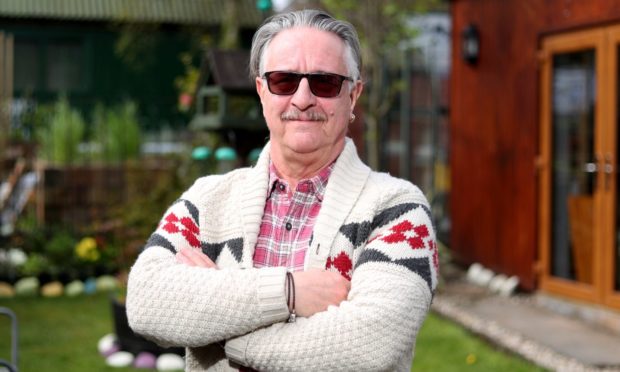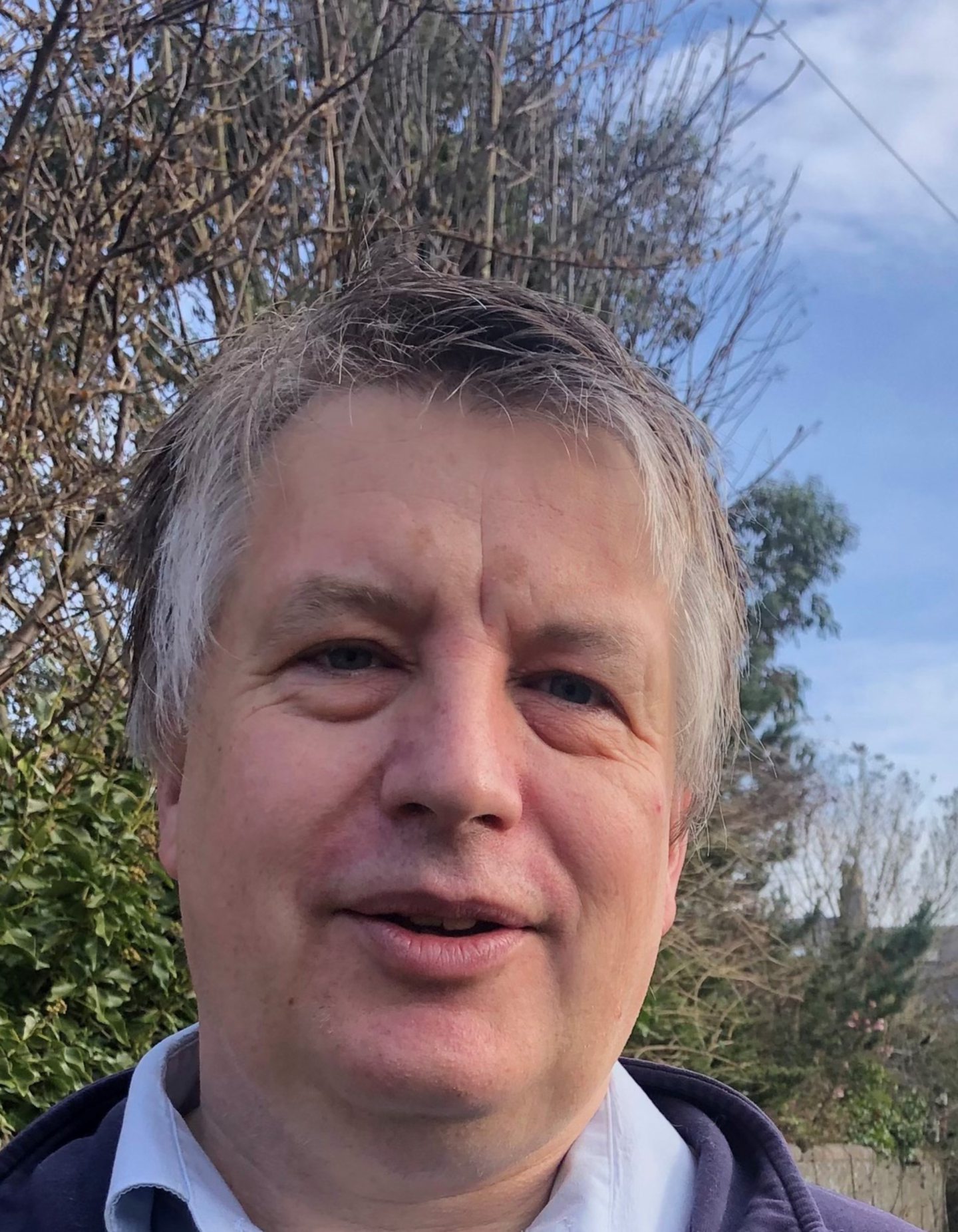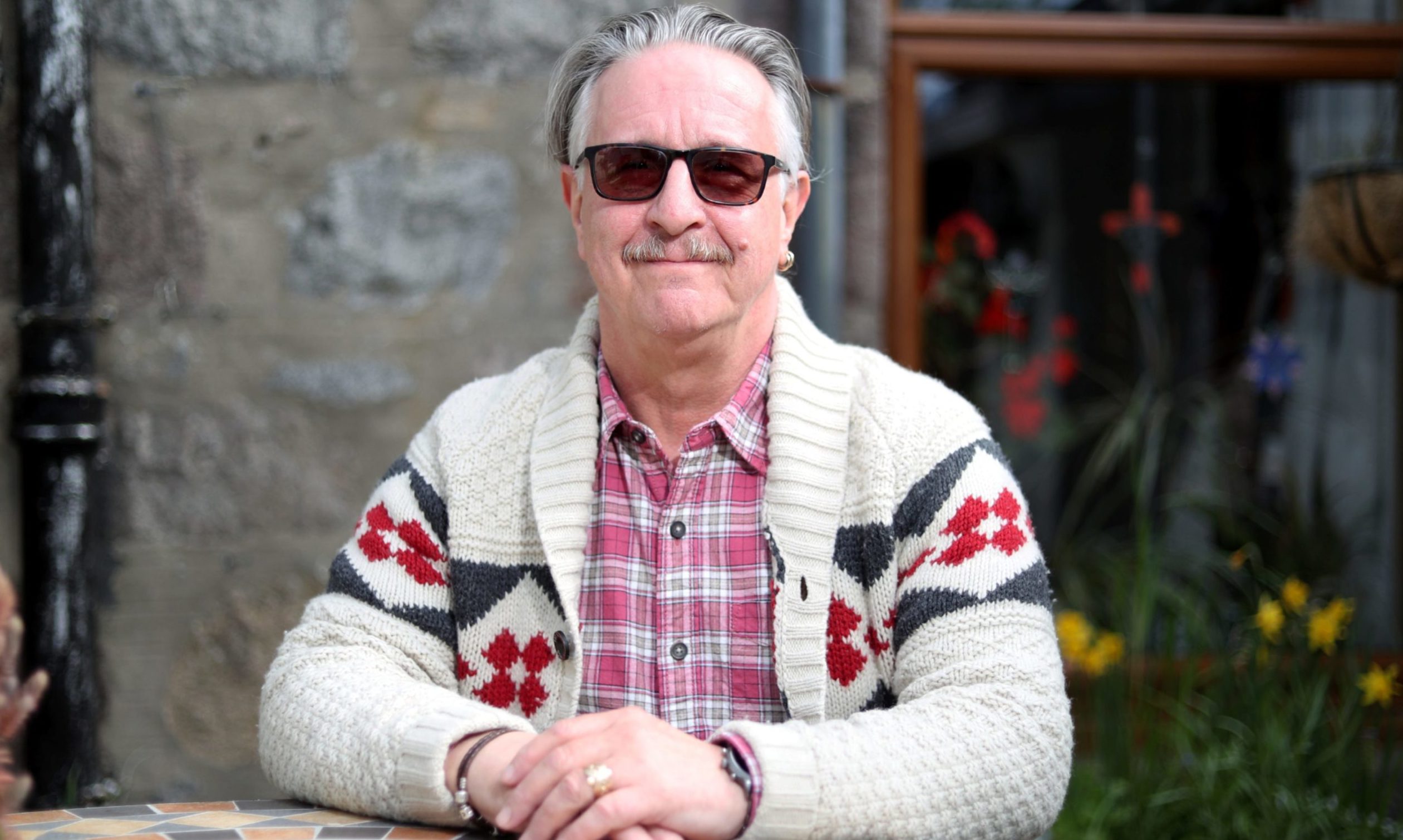Scotland’s first alcohol and drugs boss with “lived experience” of addiction says the entire approach to substance misuse must change to halt the rise in deaths.
Dermot Craig has been named the new deputy chairman of Aberdeen City Alcohol & Drugs Partnership (ADP) – with his appointment thought to be the first of its kind in Scotland.
But he says too much focus has been placed on the “tip of the iceberg” and is calling for more attention to be given to the many underlying issues at hand.
Earlier this year health chiefs issued an urgent warning when “upwards of 10 suspected deaths” from drugs took place in Aberdeen in the space of just a few weeks.
This was significantly higher than the monthly average of four recorded throughout 2020.
Investigations are continuing to determine what led to the sharp rise, but it is theorised an increase in illicit tablets and “toxic combinations” of substances have played a role.
‘We need to do this differently’
It is hoped, with Dermot’s new position, the tide can further be turned and more lives can be saved.
As part of this process, he says attitudes towards the topic need to change.
This includes hearing more about the lives of people who have faced alcohol and drugs problems, and removing the stigma often associated with them.
“The whole purpose of lived experience is to give evidence to the fact there is life after addiction – I’m absolutely living proof of that,” Dermot said.
“Recovery organisations have evolved to where we are today and, in that growth, we had to change an awful lot of the approaches we used so we could be recognised as equitable partners in the support system.
“I feel it’s really down to the courage of the partner departments of Aberdeen ADP to actually appoint me in such a senior position, and categorically make the statement that there is an intent to integrate lived experience.
“That will trickle down and help to influence the barriers we, as an organisation, sometimes face when we’re going into clinical settings or professional settings – that we don’t have the gravitas.
“We have to accept we need to do this differently, shift our approach and embrace new ideas.
“And if we’re going to be the forerunners of that, well, so be it.”
ADP team leader Simon Rayner said: “There’s lots of activity happening locally and one of the main reasons we’re so pleased Dermot has taken on the role is to challenge stigma.
“One of the hardest things, sometimes, is for people to ask for help – particularly when there is fear or concern people are going to be judged or pigeon-holed for having a call for help in terms of drug and alcohol use.
“Dermot represents a face for recovery, and that it’s OK to ask for help and to have problems.”
Issues sparked by raft of ‘complexities’
The pair are warning there is no “silver bullet” which can suddenly have an impact on people with drug and alcohol problems.
Dermot said: “The tragedy of individuals losing their lives is a very small part of the iceberg’s peak.
“The solution to prevent that lies upstream.
“We have to do as much as we can to protect the individual, and reduce the possibilities of that final tragic act.”
Simon said: “Some of the components of that iceberg are things like poverty, housing, traumatic childhood events.
“Lots of people have maybe had parents who have had alcohol issues or mental health issues, or they’ve faced domestic abuse.
“There are complexities in everybody’s lives and you can’t just unravel those or fix it.
“So the idea of recovery is about giving people hope, and direction and support – giving them the space and time to develop as a person.
“And some of the work Dermot has been involved in really creates that opportunity to build new social networks, get new ideas and set a new course for your life.”
He added: “I think everybody’s looking for a silver bullet in terms of there being a solution for people experiencing these sorts of problems.
“It can be a long-term recovery – we try and reduce harm for people, create opportunities to engage in treatment, and for people to recover and develop their lives in new directions.
“There isn’t really one single thing that is suddenly going to have an impact.”
Lived experience recognised at top levels
Over the years, alcohol and drugs agencies have had to adapt their approach to become more “business-like” and fit in with other services.
Dermot, who is also the recovery community development manager for Aberdeen In Recovery (Air), said learning from lived experience is crucial.
He faced problems with alcohol and drugs 18 years ago, and described himself as a “broken, busted individual”.
He added: “I was hopeless, absolutely hopeless.
“And the only solution I had at that point was to consume alcohol and illicit drugs.
“I was faced with an ultimatum of continuing on that journey, where the prospects weren’t good, or make some changes and reach out for help.
“I found that in a 12 step fellowship and, from that point, my life changed 180 degrees.
“I’d reached a point in my life where I had pushed away everything that was important with me.
“But, today, I’m very blessed to have the love of my family and respect of colleagues and peers – and the respect of me.
“18 years ago I would look in the mirror and want to spit in my own eye, because I hated the person I’d become.
“But today? I’m proud of myself.”
He added: “This is a new arena for me – it’s upper level, and I may have to take my earrings out.
“I made a deliberate career change 15 years ago, I knew I wanted to be involved in availing the opportunities I had received for recovery.
“I didn’t know exactly where that was going.
“But the fulfilment of this ambition started 15 years ago – to be recognised not as an individual, but for lived experience.
“It’s not about me – it’s who I represent, and that is being recognised and valued at a strategic level.”
Scotland’s drugs problem: How did we get here?
At the end of last year, the number of drug-related deaths in Scotland rose to an all-time high.
The National Records of Scotland (NRS) reported 1,264 people from across the country had died due to this over the course of 2019.
This figure was the highest since records began, and larger than every other EU country, and more than three times the UK’s overall total.
Toxicologists found 44% of all drug-related deaths in Grampian were linked to “prescribable” benzodiazepines – such as diazepam and the tranquiliser alprazolam – compared to a nationwide average of 15%.
More than half involved cocaine or heroin.
Days after the figures were released, Scotland’s public health minister Joe Fitzpatrick resigned from his post.
He had been facing a vote of no confidence over his handling of the crisis and said he, “ultimately,” should take responsibility for it.
As he stepped down, former social worker and MSP Angela Constance was appointed a dedicated minister for drug policy, reporting directly to First Minister Nicola Sturgeon.
In March she pledged £18 million of funding for drug treatment services, to be spread among a number of initiatives.
This included £3m for children and families, £5m for increasing capacity at residential rehab centres, and £5m to improve existing services.
She also announced the creation of local and national panels featuring people with “lived and living experience” of drug problems to help advise on policy going forward.


